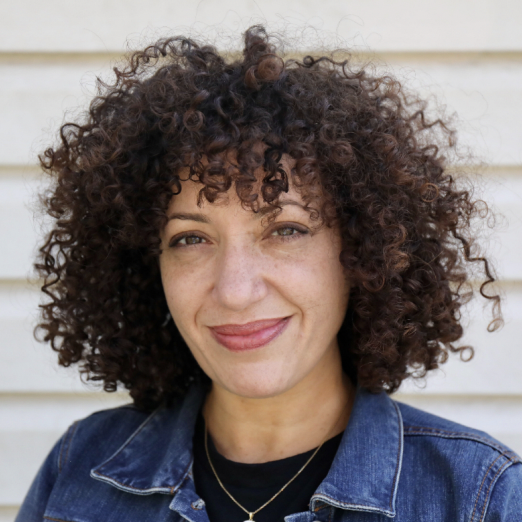
Hannah Allam's career has come full circle. After interning for The Washington Post right after her 1999 graduation from the University of Oklahoma, Allam worked for other publications before returning to the newspaper. Allam, who is part of The Post's national security desk, recently shared how her time in Norman prepared her for her career, memories from her time on campus and more.
What is your favorite memory from your time at the J-school?
The J-school is where I fell in love with journalism and, specifically, newspapers. There was nothing better than being in The Daily newsroom working on a breaking story. The electricity, the adrenaline, the rush to confirm news and be not just the first, but the most accurate and thorough, is a thrill that hasn't faded in all these years.
Do you have a favorite faculty/staff member at the J-school?
I loved them all! Jack Willis, thenadviser to The Daily, was an invaluable mentor whose lessons on patience, humility and dogged reporting have served me well over the years. I still think about David Craig's ethics case studies in tricky situations, and Bill Loving gave me a healthy fear of libel laws.
How did your career path lead you to The Washington Post?
I interned for The Washington Post right out of OU, which is a testament to the strength and reputation of the J-school program. It took 20-plus years of reporting overseas for other publications and then building up a national security portfolio in Washington, but I finally made it back to The Post. One of my first front-page stories had an Oklahoma City dateline on it, and I felt really grateful to have come full circle.
Describe your role at The Washington Post.
I am part of the national security desk, focusing on domestic terrorism and violent extremism of all sorts - far right, far left, international groups and so on. These days, the focus has been on farright extremism, which the FBI describes as the most active domestic threat. I covered the Jan. 6 riots at the U.S. Capitol and am following the prosecution and fallout from that day.
What do you consider to be the most significant moments of your career so far?
Serving as Baghdad bureau chief during the Iraq War was the honor and challenge of a lifetime. I was in my 20s and responsible for a bureau covering, at the time, the biggest story in the world. Plus, I felt the weight of responsibility for life-or-death decisions to keep the staff of 18 safe in an active conflict zone. It was heartbreaking, exhilarating, stressful and fulfilling all at once.
How did the J-school prepare you for your future career?
All the best lessons I learned in journalism came from the J-school. Professors there made the old Poynter Institute values come alive for me: "Seek the truth and report it fully. Act independently. Minimize harm." At OU, we spent a lot of time talking about each of those three basic points, which really are the foundation for solid journalism. Also, I think there's something to be said about learning journalism in a place like Oklahoma rather than, say, at a big East Coast institution. I was surrounded by natural storytellers whose humility and compassion offered early lessons on the kind of journalism I wanted to pursue - stories that show how big governmental decisions trickle down to ordinary lives across the country.
What advice would you give to current students aspiring to a career in mass communication?
I don't believe in the doom-and-gloom predictions for the industry. I think there will always be a need for storytellers and documentarians, but I think the delivery methods are changing. I'd advise getting familiar with audio, video, social media, etc, in addition to traditional print reporting. But, whatever the medium, the work must be underpinned by the highest standards of ethics and accuracy.
What do you do for fun outside of work?
I take my kids to the wonderful parks and museums DC has to offer. And I like to get home to Oklahoma as much as I can. There's only so long I can go without a Braum's limeade or Pickle-O's from Classic 50's!
Are there any other organizations or projects you’re involved with outside of your full-time job that you want to highlight?
I'm honored to serve on the board of the International Women's Media Foundation, a nonprofit that works to make conditions safer and more supportive for women journalists around the globe. Their work trying to evacuate Afghan women journalists with the recent U.S. military withdrawal was nothing short of extraordinary.